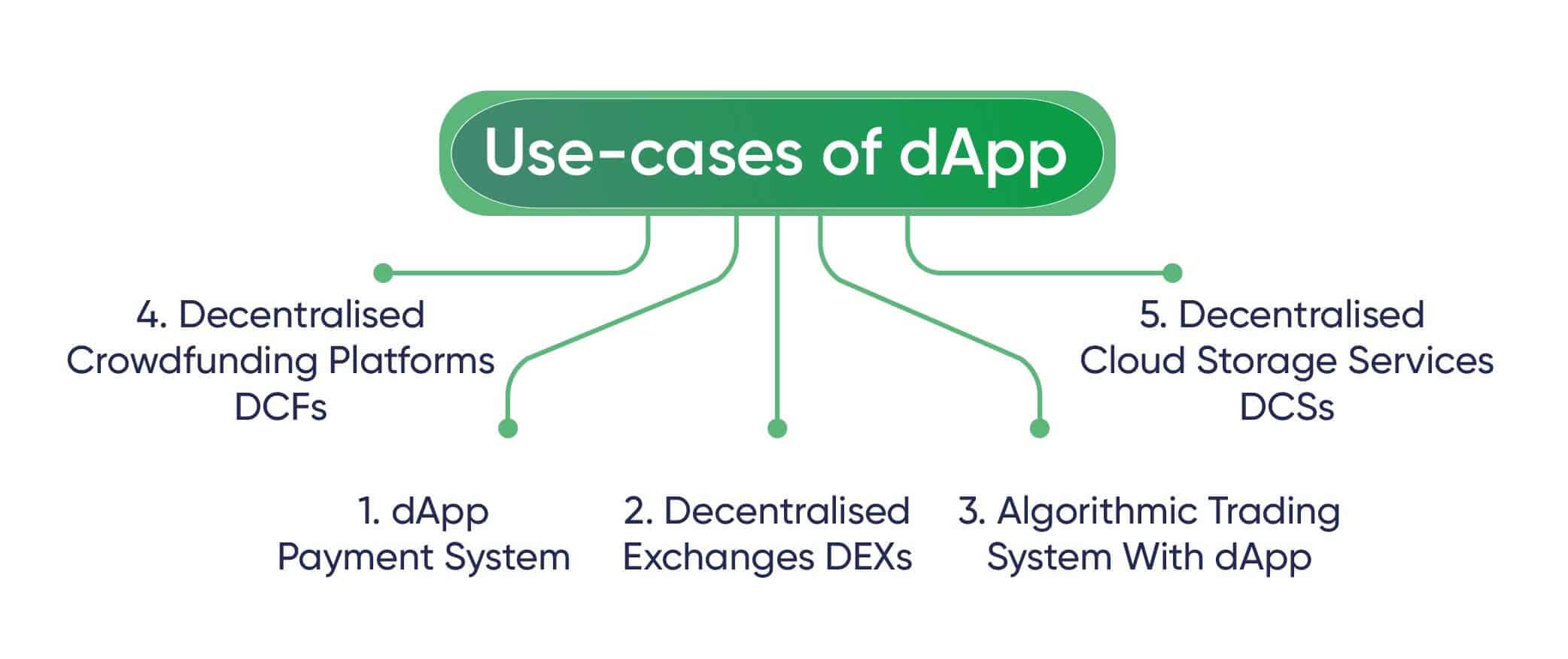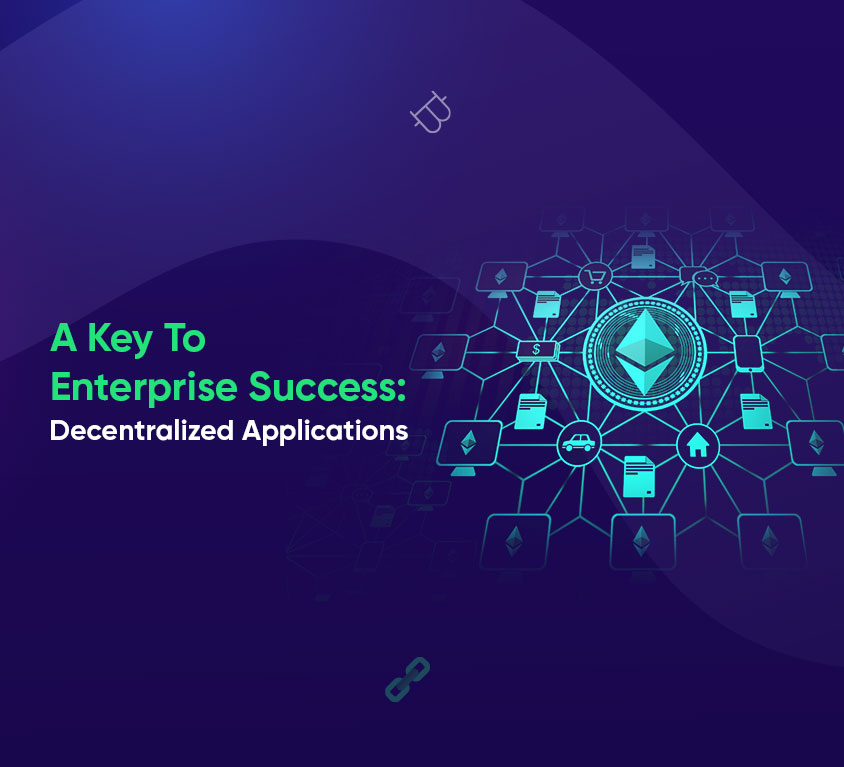
Introduction
Web3 & Blockchain Consultancy :
A Key To Enterprise Success: Decentralized Applications
Decentralized apps and the blockchain aren’t something new. However, one unique aspect of the industry is the growing number of dApps emerging across many industries. In addition, all kinds of businesses are starting to adopt technology for their benefit. But, as with any ground-breaking technology, challenges are bound to be overcome along the way. So, I’ll outline five use cases of dApp, advantages, and types of dApps, hoping we can continue pushing this technology forward together.What are Decentralized Apps?
Decentralized applications, or dApps, are a new way of building software. This next generation of applications is more secure and transparent since they run on a peer-to-peer network. Dapps are apps that do not have a single point of failure and cannot be hacked, destroyed, or censored by a single entity. As a result, Dapps allow users to create value without having to trust each other or any third parties.The following are some attributes of significance on dApps
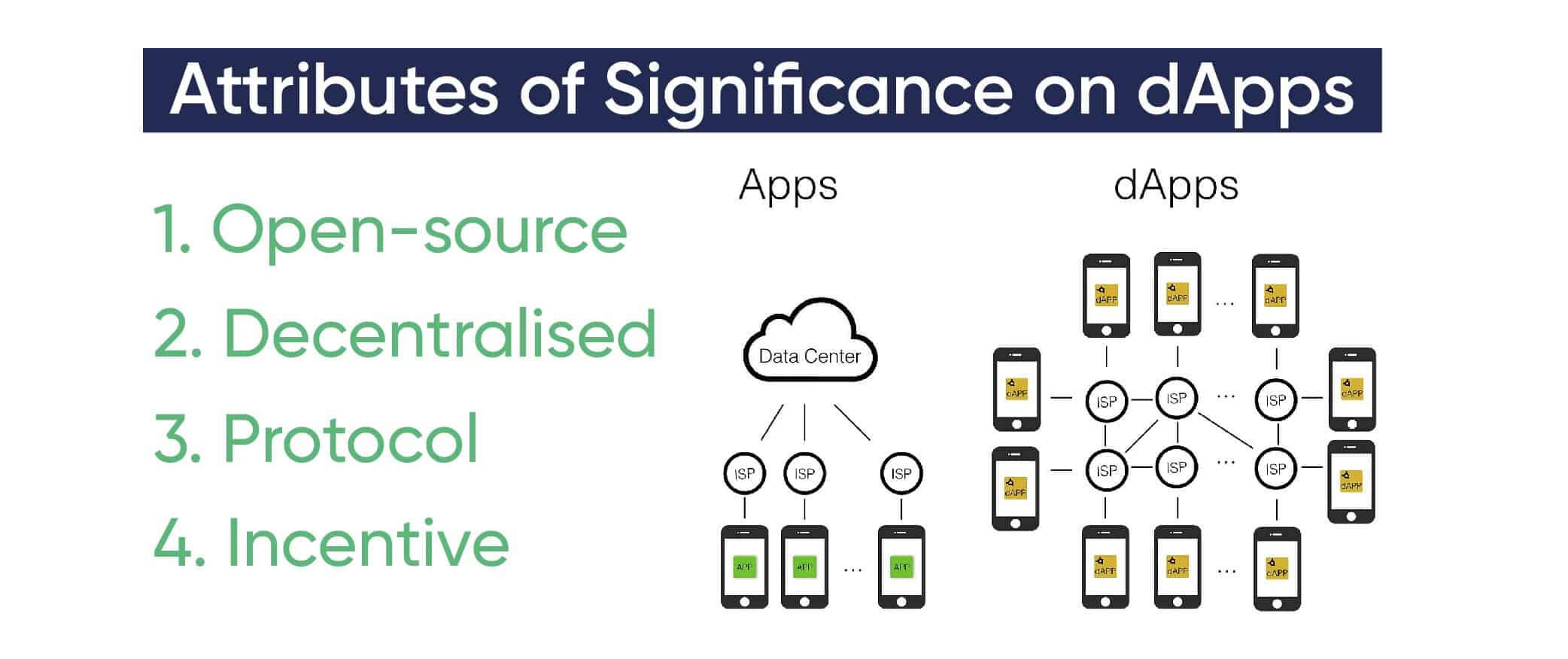
1. Open source
The codebase of the dApp development is available to all for scrutiny due to the open-source nature that ensures transparency and accountability among developers working on it. Also, it prevents any centralization from occurring within the development team itself.
2. Decentralized
The excellent part of dApps is that it does not fall into a centralized authority. A decentralized and public ledger (blockchain) stores all operations records for a dApp, avoiding the centralization feature.
3. Protocol
The community working around the decentralized app has to come to common ground on a cryptographic algorithm to demonstrate proof of value and proof of stake. The basic idea behind proof of stake is that it allows you to mine or validate blocks without spending electricity or computing power. You only need to own some tokens from the network, and you can participate in validating blocks on the chain.
4. Incentive
The protocol is an incentive for those who know the working of blockchain to understand that the application must use and provide specific tokens just like the technology. Plus, the apps also offer digital assets to users on the network to reward them for validating blocks on the chain.
Comparison: Centralized vs decentralized apps?
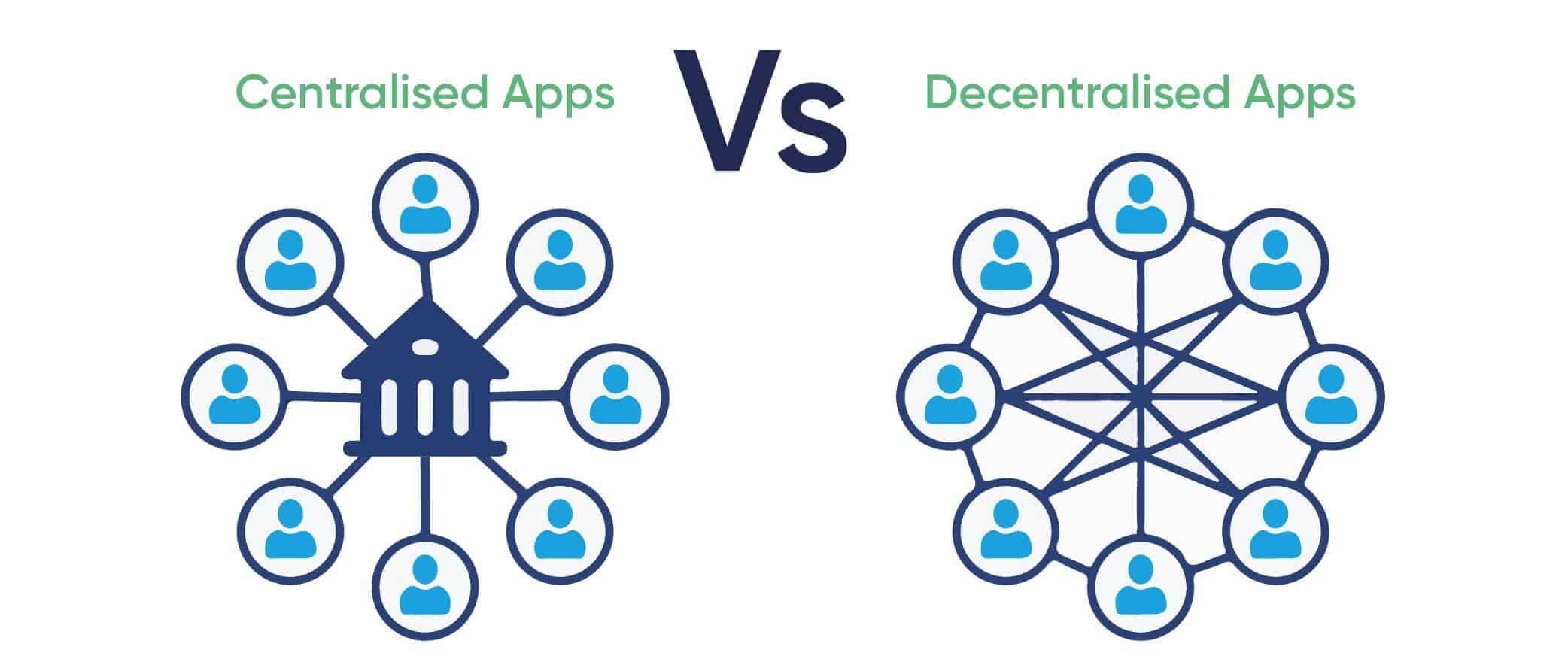 Centralized apps store data in one location, making them easier to access and maintain, but they are also susceptible to attacks from hackers and malicious actors. On the other hand, decentralized apps have no central hub for data storage. Instead, blockchain technology records all transactions, which makes them unchanging and impossible to hack by individual parties. Each party has access to an unalterable record of the transaction.
Centralized apps store data in one location, making them easier to access and maintain, but they are also susceptible to attacks from hackers and malicious actors. On the other hand, decentralized apps have no central hub for data storage. Instead, blockchain technology records all transactions, which makes them unchanging and impossible to hack by individual parties. Each party has access to an unalterable record of the transaction.
There are several reasons why stakeholders choose DApps over traditional apps
1. Immutability
DApps run on a decentralized network, so no one can change or alter the data. Due to this, Dapps are more reliable than traditional apps, where hackers or companies can modify data.
2. Interoperability
DApps can communicate with each other through smart contracts. Smart contracts allow them to share data and services by creating a decentralized web where users have control over their information instead of a few large corporations.
3. Decentralisation
DApps run on a decentralized network that prevents censorship and allows users more freedom than traditional apps.
4. Evolvability
Developers can build DApps on top of each other to create new features and add them to the network without disrupting existing services. As a result, it allows for better scalability and makes building on top of existing platforms easier.
5. Trustless
A dApp is trustless, meaning there is no possibility of being cheated or hacked because blockchain functions as an immutable ledger.
6. Data storage
There are multiple computers involved in the storage of data in Dapps. Therefore, an enterprise’s success depends on decentralized applications, especially if one computer is destroyed or hacked; its encryption makes it inaccessible to all but authorized users.
Use cases of Dapps
Decentralized apps are helpful for many industries and sectors, but here are some top five use cases:Top Five Dapp use cases
1. Dapp Payment systems
A decentralized payment system is an application that allows you to send money directly without the need for a third party. You can also create your currency within these systems, meaning anyone can create their cryptocurrency with no restrictions or regulations. Therefore, it is easier for people to start building their business models from scratch without trusting financial institutions to help them out. Paying for goods and services online is the most common use case for Dapps, as it is for regular software applications. The difference is that instead of paying a third-party company like PayPal or Stripe, you pay the blockchain directly.There are several ways to make payments:
A. Payment gateways facilitate the transfer of cryptocurrency funds to merchants.
B. Send your cryptocurrency directly to the merchant’s wallet address (Using an exchange or an integrated wallet).
C. By converting your currency into cryptocurrency at an exchange and then sending it on to the merchant’s wallet address (Using an exchange or an integrated wallet).
2. Decentralized Exchanges (DEXs)
Companies like Binance and Coinbase are already using Decentralized applications. They have created their DEX (decentralized exchanges). These exchanges allow you to trade cryptocurrencies without going through a centralized exchange like Binance.3. Decentralized Crowdfunding Platforms (DCFs)
A decentralized crowdfunding platform is an application that allows users to raise money for their projects by issuing tokens on a blockchain. The advantage of using a DCF is that it will enable startups to raise funds without needing an intermediary. As a result, startups have greater control over their funds, and there’s no risk of fraud or embezzlement (as with centralized platforms).4. Decentralized Cloud Storage Services (DCSs)
Decentralized cloud storage is an application of decentralized apps. The need for a decentralized storage service arises because centralized storage systems are vulnerable to hacking, data loss, and privacy breaches. A DCS, on the other hand, is immune to these vulnerabilities because companies can store it in multiple locations, and no one can alter it.
5. Algorithmic trading systems with dApp
Many traders want to use algorithms to trade based on specific parameters. Large companies can use algorithmic trading systems to access massive amounts of data and computing power. With decentralized applications, smaller traders can now create algorithms and trade them on various exchanges in real-time.
How is dApp beneficial to enterprises?
Recently that many enterprises have started to realize the benefits of Dapps. In this post, we will look at some of the benefits that decentralized apps offer to enterprises.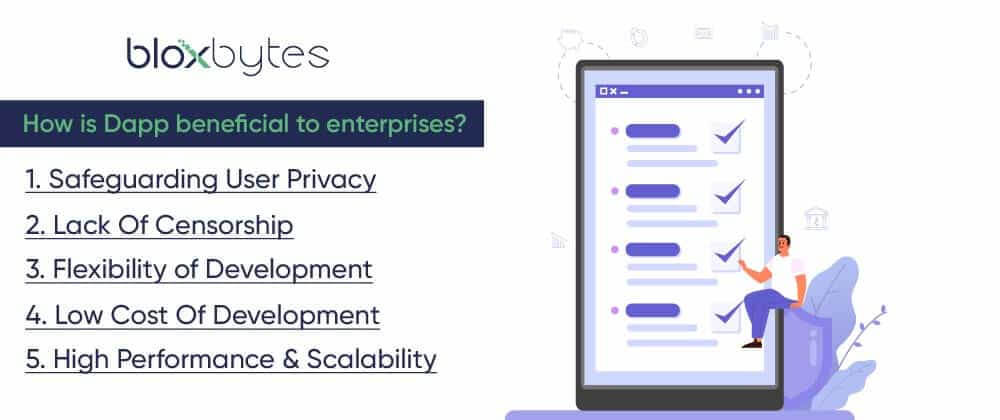
1. Safeguarding user privacy
Dapps allow users to maintain their privacy. The data is stored on a blockchain rather than in a centralized database. As a result, there is no single point of failure; thus, no single party can access all data.
2. Lack of censorship
Dapp enables users to access specific applications or content without any restrictions. So, for example, Facebook can restrict anyone from using it and will not be able to access any content shared by other users or any content they create while they are still allowed to use Facebook. With a decentralized application, however, there would be no way of banning someone without banning everyone else too!
3. Flexibility of development
Developers can deploy apps with the same tools they use to develop web apps, but they are also highly secure and immutable. As a result, anyone can build dApp without having specific knowledge of blockchain. However, companies who want to leverage the benefits of blockchain without investing in developing it from scratch can find it helpful.
4. Low cost of development
Dapps are cheaper than traditional applications because there is no need for intermediaries or third parties to provide infrastructure services such as storage and computing power.
5. High performance and scalability
Dapps are highly scalable because they don’t require a centralized server architecture or platform, which means they can accommodate millions of users while maintaining high-performance levels.
